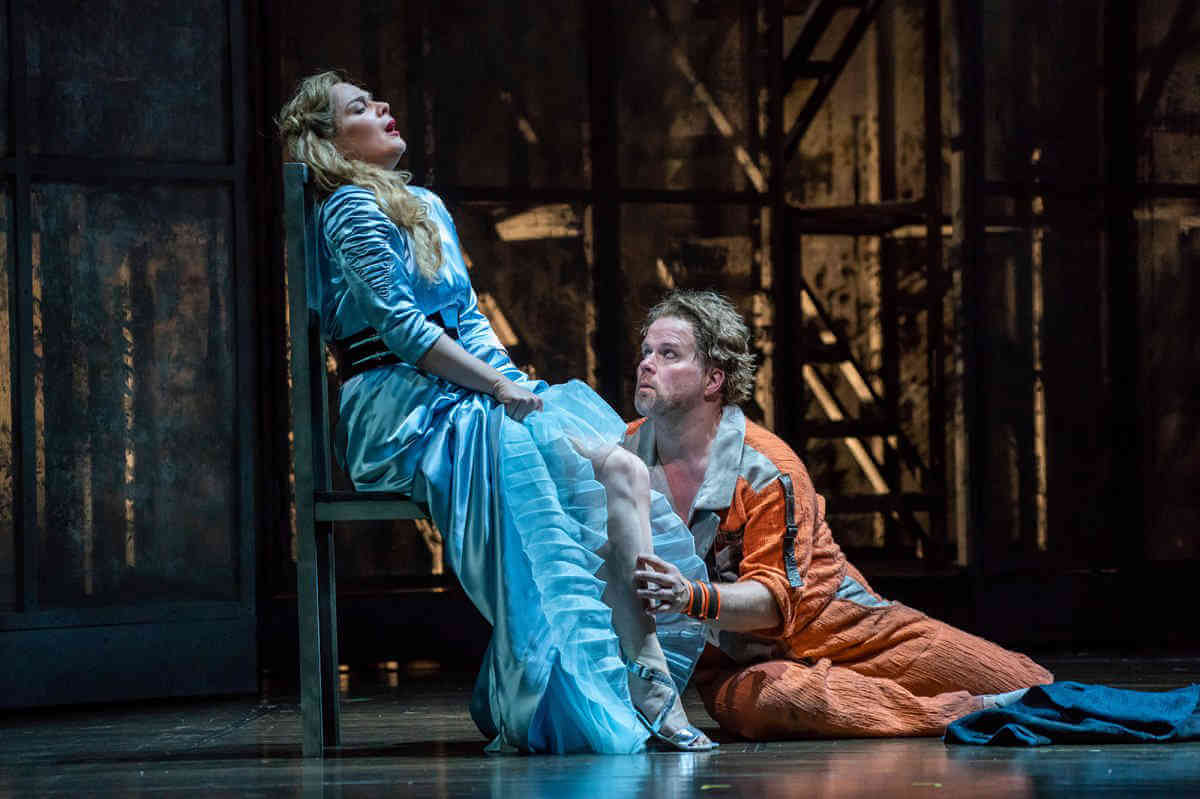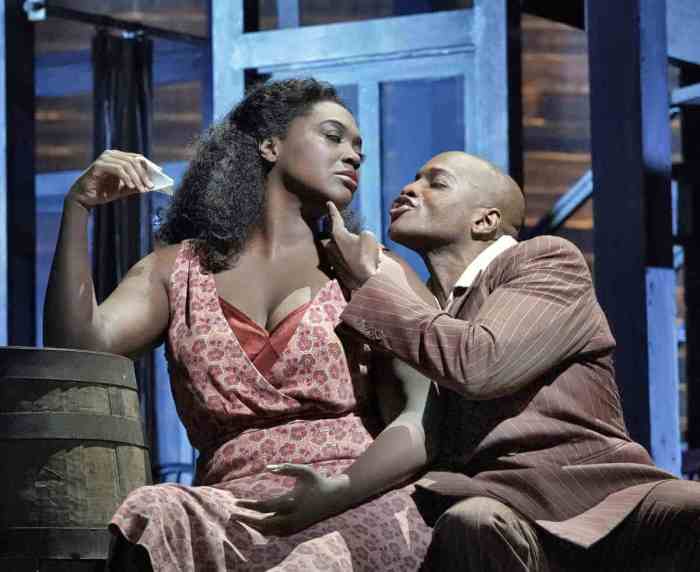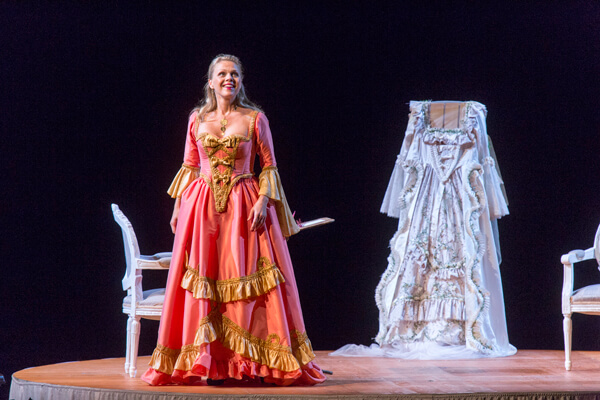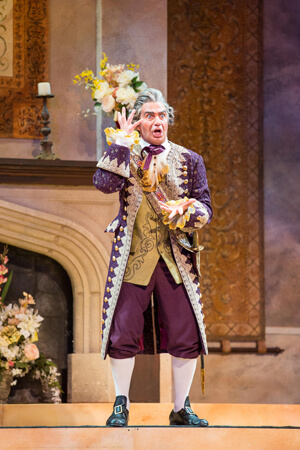Erich Wolfgang Korngold (1897–1957) revolutionized the sound of the Hollywood film score, despite being raised by a dominating conservative music critic father, Julius, to be the next Mozart, Wagner, or Strauss in turn-of-the-century Vienna. A child prodigy, Korngold produced his first theatrical work at age 13 and by age 23 scored an international triumph with his opera “Die tote Stadt” (1920). The rise of the Nazis and the Austrian Anschluss in 1938 drove the Jewish composer permanently to Hollywood where he had been writing scores for Hollywood films, including “The Adventures of Robin Hood” and “Kings Row.” Korngold’s classical Viennese style and orchestral techniques epitomized the classic Hollywood style of film scoring — later appropriated by John Williams and others. After the war, the aging boy wonder was viewed as a sell-out and his tonal post-Romantic style was considered passé — “more corn than gold” the critics said of his 1945 violin concerto. Korngold died in Los Angeles at age 60 believing himself a forgotten man. The 1970s saw a reappraisal and revival of Korngold’s works, including orchestral albums of his film scores co-produced by his younger son George and a successful 1975 revival of “Die tote Stadt” at New York City Opera in an admired production by Frank Corsaro.
Dr. Leon Botstein devoted the 2019 Bard Summerscape Festival to “Korngold and his World,” exploring all aspects of Korngold’s eclectic career. The centerpiece was the American premiere of Korngold’s most ambitious opera “Die Wunder der Heliane” (1927) in a fully staged production. His most familiar and popular opera “Die Tote Stadt” (1920) was performed in a semi-staged concert.
Korngold hoped “Der Wunder von Heliane” (“The Miracle of Heliane”) would be his masterpiece but it was a mixed success at its premiere and disappeared when the Nazis banned his music a few years later. The Telegraph marked its British premiere by proclaiming it “unmitigated codswallop.” The libretto, set in an unnamed country at an unspecified time, is an overheated symbolist-expressionist parable based on a novella by poet and dramatist Hans Kaltneker. It concerns the forbidden love of Heliane, the beautiful and virginal wife of the despotic Leader, for the messianic Stranger, who is imprisoned for swaying the populace as a prophet of love. Heliane visits him in prison and despite her never having given herself to her husband, she promptly accedes to the Stranger’s requests to nuzzle her golden hair, caress her bare feet, and gaze upon her naked body. The chaste yet transgressive lovers are put on trial before the judges and the Leader. Heliane’s defense occasions the one piece from the opera that has survived outside the work itself: “Ich ging zu ihm,” a soaring soprano aria recorded by Renée Fleming. The “miracle” of the title sees the resurrection of the Stranger, with the lovers ascending to some elevated spiritual plane to an explosion of harp and strings that wouldn’t sound out of place in a Warner Brothers extravaganza.
Korngold’s music is loud, it is busy, it flirts with unconventional harmony without crossing over into dodecaphonic territory. Yet outside of Heliane’s aria, not much of it is musically memorable. None of the emotions depicted in the story are grounded in psychological or human reality, so Korngold falls back on musical posturing and note-spinning without much musical substance. Botstein and the American Symphony Orchestra proved vital advocates for Korngold’s music in the pit — the textures were vibrant and the rhythms were incisive. The oft-maligned Botstein in his proper métier is a quite fine conductor — he lacks the light touch for Chabrier and operetta. But in densely orchestrated early 20th century German or Eastern and Middle European serious operas, Botstein is an admirable technician and interpreter. I got a better sense of the socre’s scope and quality from Botstein’s interpretation than from the Decca CD recording led lifelessly by John Mauceri.
Christian Räth’s sensible often utilitarian production, though updated to some grim 20th century totalitarian state, was basically conservative, which isn’t a bad idea for a totally unfamiliar work. A wilder more surreal approach would have added dramatic flair but probably further confuse an already abstruse and pretentious narrative. Esther Bialas’ set and costume designs mixed imagery from Weimar-era silent films like “Metropolis” with grungy industrial realism. The palette stressed dark grays and blacks with isolated splashes of color.
The cast was mostly young, nervy, and game, struggling with difficult post-Wagnerian vocal writing and bombastic orchestration — Botstein sometimes covered the singers in his enthusiasm for Korngold’s ambitious orchestral writing. Lithuanian soprano Ausrine Stundyte, in a rare US appearance, made for a dramatically intelligent, vocally resilient Heliane. Her sturdy tone can turn wiry under pressure and the climaxes of “Ich ging zu ihm” didn’t ascend effortlessly in the soprano stratosphere, but she showed great stage savvy and poise in a role that is more a concept of the feminine ideal than a real human being. Alfred Walker’s rich mahogany baritone revealed both warmth and power as the brutal Leader. He actually gained sympathy for the character through the beauty of his tone and fine German diction (which I am not sure the composer intended for the role). In contrast, heldentenor Daniel Brenna as the Christ-like Stranger, dressed in an orange prison jumpsuit, was clumsy and ungainly both in voice and stage persona. Further working against the libretto’s description of the Stranger’s physical beauty and spirituality, Brenna was wrongly directed to paw Heliane with crude physical lust that cheapened the Stranger’s attachment to her. Brenna has not figured out the passaggio transition into the upper register, constantly squeezing out strangulated high notes through his glottis. There was a powerful supporting turn by mezzo Jennifer Feinstein as the sinister Messenger and a vivid cameo by the inventive character tenor David Cangelosi as the blind judge.
Korngold’s career sharply declined after “Heliane,” but that was as much 20th century history working against him as bad luck or loss of talent. His overbearing father’s attacks on musical modernists in the press also did harm.
It was good to hear “Die tote Stadt” (“The Dead City”) again on August 18 in a musically successful concert performance with a fine cast — this score holds together much better than “Heliane” and has at least two memorable vocal showstoppers in the score.
This dark symbolist story of death, grief, and obsession with similarities to Hitchcock’s “Vertigo” has always worked onstage. Sara Jakubiak as Marie/ Marietta revealed a pungent, colorful soprano with a boldly uninhibited stage presence. Experienced in the role onstage, Jakubiak portrayed the Italian dancer as a vulgar and earthily sexual doppelgänger for Paul’s virtuous dead wife Marie. Deborah Nansteel as the housekeeper Brigitta impressed with a richly burnished contralto tone with access to mezzo high notes.
Handsome barihunk Alexander Elliott followed up his successful “Pearl Fishers” substitution at the Met with a double act as Frank and Fritz. As the older friend Frank, Elliott sounded rather too youthful and lacked gravitas. Elliott sang Fritz the Pierrot’s Lied without the Viennese schmaltz written into the piece. That might be the fault of the conductor — Botstein doesn’t really do gemütlich choosing rather fast tempos with no rubato. Marietta’s Lied “Glück das mir verblieb” from Jakubiak also lacked ethereal spin, sounding rather matter of fact at a faster tempo with no ritards.
The triumph of the afternoon was the youthful heldentenor Clay Hilley in the long and punishing central role of Paul, the grieving husband whose obsession fuels the drama. Hilley’s plangent lyrical tones easily gained stentorian power without forcing. This was a truly beautiful and secure voice from top to bottom that I would not mind hearing sing Lohengrin or Walther von Stolzing in “Die Meistersinger.” Possibly at the Met?
Jordan Fein’s semi-staging featured rows of white chairs in tiers with a central podium like an abandoned orchestra pit and a non-singing ghost of Marie who participated in the action. It got the job done with minimum fuss and the music did the rest. It is a shame that the film projections of Bruges, the “Dead City,” from the 1975 NYCO Frank Corsaro production are probably lost or unavailable – they added a lot. Though he missed out on operetta charm and sentiment, Botstein scored in the darkly brooding and fervently dramatic pages of Korngold’s score and drew expert playing from the youthful Orchestra Now musicians.
In his life, Korngold came into touch with Mahler, Puccini, and Strauss, the glamorous fields of opera and operetta, and later the Hollywood of Errol Flynn — all were part of his world along with the Nazis and two World Wars. His music lived on through all that and survives today thanks to advocates like Botstein.

































